Cognitive Function
How to submit an article:
- Registered users can submit any published journal article that has a unique DOI (Digital Object Identifier) name or link to Research Hub.
- For example, you can paste the full DOI link:
https://doi.org/10.1109/5.771073or just the DOI name:10.1109/5.771073into the field above and click submit. - The person who is first to submit a valid article to Research Hub will forever be credited for it, and every article submission earns you +6 Research Points.
Also known as: Cognition, Cognitive Impairment
Related Topics
Published research studies are articles that present the findings of original research that has undergone a peer-review process and has been made publicly available in scholarly journals, books or other media.
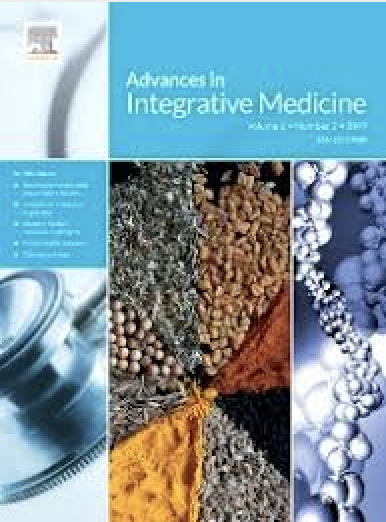
A systematic review of the therapeutic properties of lemon essential oil
2025 Sep Advances in Integrative Medicine Gonçalves S, Castro J, Almeida A, Monteiro M, Rodrigues T, Fernandes R, et al.
The results of the systematic review consistently demonstrated the efficacy of lemon essential oil in reducing anxiety among students, Acute myocardial infarction patients, and pre-surgical patients, as well as improving physiological benefits such as blood pressure and heart rate in Acute myocardial infarction patients and cognitive performance among students, and measures related to halitosis in oral health.
Systematic Review Halitosis Cognitive Function Myocardial Infarction Anxiety Lemon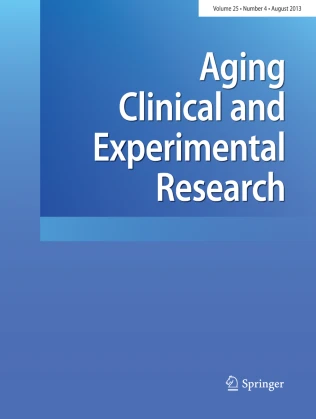
Concurrent training associated with moderate walnut consumption improved isokinetic strength, subjective sleep quality, cognitive performance and postural balance in elderly active men: a randomized controlled trial
2024 Feb 29 Aging Clinical and Experimental Research Kamoun A, Yahia A, Farjallah MA, Maaloul R, Marzougui H, Bouaziz M, et al.
Randomised Controlled Trial Postural Balance Cognitive Function Sleep WalnutWalnut consumption while doing concurrent training improves strength, sleep quality, standing support, cognitive performance and postural balance in elderly men.
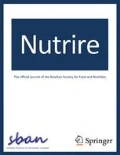
Nutritional and health-beneficial values of almond nuts consumption
2023 Nov 02 Nutrire Ouzir M
Review Article Cardiovascular Disease Cognitive Function Almond Type 2 Diabetes ObesityAlmond consumption has beneficial impacts on cardiovascular diseases, diabetes, obesity, and it can improve cognitive performance and protect against skin aging.

Effectiveness of Fish Roe, Snow Fungus, and Yeast Supplementation for Cognitive Function: A Randomized, Double-Blind, Placebo-Controlled Clinical Trial
2023 Sep 29 Nutrients Lin YK, Lin YH, Chiang CF, Jingling L
Randomised Controlled Trial Anxiety Fatigue Yeast Fish Roe Snow Fungus Cognitive FunctionA beverage formula containing fish roe, snow fungus, and yeast enhances cognitive function by improving memory, response times, and emotional recognition, while reducing anxiety and fatigue.

Significance of long-chain polyunsaturated fatty acids (PUFAs) for the development and behaviour of children
2023 Aug 12 European Journal of Pediatrics Schuchardt JP, Huss M, Stauss-Grabo M, Hahn A
Polyunsaturated fatty acids are of central importance for the development and functioning of the brain and nervous system, especially during childhood development. An adequate supply of long-chain ω-3 fatty acids, such as EPA and DHA in particular, is therefore indispensable for normal brain development during foetal growth in the cerebralisation phase, as well as for visual and cognitive functions in neonates.
Review Article Polyunsaturated Fatty AcidsResearch insights are moderated by the Research Hub team and offer an at-a-glance overview of interesting research findings.

2024 Aging Clinical and Experimental Research
Walnut consumption while doing concurrent training improves strength, sleep quality, standing support, cognitive performance and postural balance in elderly men.
Randomised Controlled Trial Postural Balance Sleep Walnut
Concurrent training associated with moderate walnut consumption improved isokinetic strength, subjective sleep quality, cognitive performance and postural balance in elderly active men: a randomized controlled trial
Kamoun A, Yahia A, Farjallah MA, Maaloul R, Marzougui H, Bouaziz M, et al.

2023 Nutrire
Almond consumption has beneficial impacts on cardiovascular diseases, diabetes, obesity, and it can improve cognitive performance and protect against skin aging.
Review Article Almond Cardiovascular Disease Obesity Type 2 Diabetes
Nutritional and health-beneficial values of almond nuts consumption
Ouzir M

2023 Nutrients
A beverage formula containing fish roe, snow fungus, and yeast enhances cognitive function by improving memory, response times, and emotional recognition, while reducing anxiety and fatigue.
Randomised Controlled Trial Anxiety Fatigue Fish Roe Snow Fungus Yeast
Effectiveness of Fish Roe, Snow Fungus, and Yeast Supplementation for Cognitive Function: A Randomized, Double-Blind, Placebo-Controlled Clinical Trial
Lin YK, Lin YH, Chiang CF, Jingling L
2023 CNS & Neurological Disorders - Drug Targets
Blueberry consumption significantly improves two-back test accuracy, suggesting potential cognitive benefits.
Meta-Analysis Blueberry
The Potential Effect of Blueberry on Cognitive Health and Mood State
based on Human Intervention Studies: Systematic Review and Mini
Meta-Analysis
Soveid N, Barkhidarian B, Moradi S, Gholami F, Rasaei N, Himmerich H, et al.
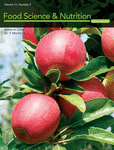
2023 Food Science & Nutrition
Eating apples and apple products can enhance health by protecting the cardiovascular system, combating cancer and cognitive impairment, and improving hair growth, among other beneficial effects.
Review Article Apple Cancer Cardiovascular Disease Hair Growth
Does an apple a day keep away diseases? Evidence and mechanism of action
Zhang Y, Zeng M, Zhang X, Yu Q, Zeng W, Yu B, et al.
Review Articles
Review articles summarise and critically evaluate the current state of research on a specific topic or field by synthesising multiple primary research studies.

A systematic review of the therapeutic properties of lemon essential oil
2025 Sep Advances in Integrative Medicine Gonçalves S, Castro J, Almeida A, Monteiro M, Rodrigues T, Fernandes R, et al.
The results of the systematic review consistently demonstrated the efficacy of lemon essential oil in reducing anxiety among students, Acute myocardial infarction patients, and pre-surgical patients, as well as improving physiological benefits such as blood pressure and heart rate in Acute myocardial infarction patients and cognitive performance among students, and measures related to halitosis in oral health.
Systematic Review Halitosis Cognitive Function Myocardial Infarction Anxiety Lemon
Nutritional and health-beneficial values of almond nuts consumption
2023 Nov 02 Nutrire Ouzir M
Review Article Cardiovascular Disease Cognitive Function Almond Type 2 Diabetes ObesityAlmond consumption has beneficial impacts on cardiovascular diseases, diabetes, obesity, and it can improve cognitive performance and protect against skin aging.

Significance of long-chain polyunsaturated fatty acids (PUFAs) for the development and behaviour of children
2023 Aug 12 European Journal of Pediatrics Schuchardt JP, Huss M, Stauss-Grabo M, Hahn A
Polyunsaturated fatty acids are of central importance for the development and functioning of the brain and nervous system, especially during childhood development. An adequate supply of long-chain ω-3 fatty acids, such as EPA and DHA in particular, is therefore indispensable for normal brain development during foetal growth in the cerebralisation phase, as well as for visual and cognitive functions in neonates.
Review Article Polyunsaturated Fatty AcidsThe Potential Effect of Blueberry on Cognitive Health and Mood State based on Human Intervention Studies: Systematic Review and Mini Meta-Analysis
2023 Aug CNS & Neurological Disorders - Drug Targets Soveid N, Barkhidarian B, Moradi S, Gholami F, Rasaei N, Himmerich H, et al.
Meta-Analysis Systematic Review Blueberry Cognitive FunctionBlueberry consumption significantly improves two-back test accuracy, suggesting potential cognitive benefits.

An analysis of the nutritional effects of Schisandra chinensis components based on mass spectrometry technology
2023 Jul 25 Frontiers in Nutrition Jia M, Zhou L, Lou Y, Yang X, Zhao H, Ouyang X, et al.
The review highlights the potential nutritional effects of S. chinensis, including its role in enhancing immunity, acting as an antioxidant, anti-allergen, antidepressant, and anti-anxiety agent, as well as its ability to improve memory, cognitive function, and metabolic imbalances. Advanced mass spectrometry detection technologies have the potential to discover new nutritional components and verify the effects of different extraction methods. This review provides guidelines for further research on the nutritional value of S. chinensis and the development of healthy food products.
Review Article Wu Wei ZiClinical Trials
Clinical trials are research studies that involve people and are conducted to evaluate the safety and efficacy of new treatments or interventions, such as drugs, medical devices, or behavioural therapies.

Concurrent training associated with moderate walnut consumption improved isokinetic strength, subjective sleep quality, cognitive performance and postural balance in elderly active men: a randomized controlled trial
2024 Feb 29 Aging Clinical and Experimental Research Kamoun A, Yahia A, Farjallah MA, Maaloul R, Marzougui H, Bouaziz M, et al.
Randomised Controlled Trial Postural Balance Cognitive Function Sleep WalnutWalnut consumption while doing concurrent training improves strength, sleep quality, standing support, cognitive performance and postural balance in elderly men.

Effectiveness of Fish Roe, Snow Fungus, and Yeast Supplementation for Cognitive Function: A Randomized, Double-Blind, Placebo-Controlled Clinical Trial
2023 Sep 29 Nutrients Lin YK, Lin YH, Chiang CF, Jingling L
Randomised Controlled Trial Anxiety Fatigue Yeast Fish Roe Snow Fungus Cognitive FunctionA beverage formula containing fish roe, snow fungus, and yeast enhances cognitive function by improving memory, response times, and emotional recognition, while reducing anxiety and fatigue.
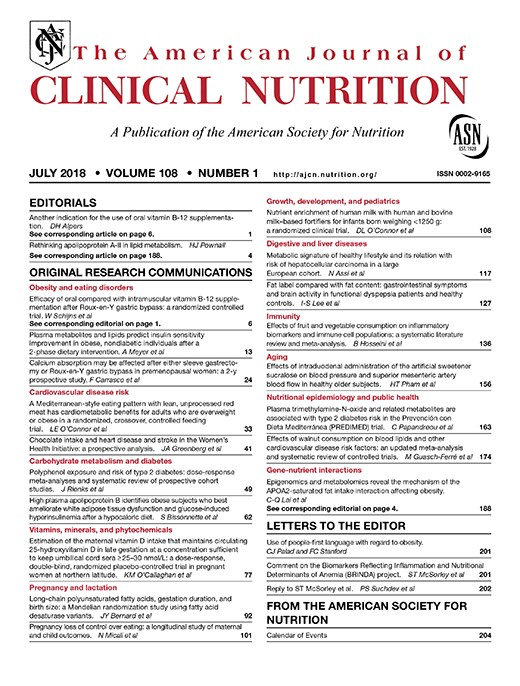
Wild blueberry (poly)phenols can improve vascular function and cognitive performance in healthy older individuals: a double-blind randomized controlled trial
2023 Jun The American Journal of Clinical Nutrition Wood E, Hein S, Mesnage R, Fernandes F, Abhayaratne N, Xu Y, et al.
Randomised Controlled Trial Cognitive Function Blueberry High Blood Pressure Cardiovascular DiseaseConsumption of blueberry powder daily improves vascular function, cognitive abilities, and reduces blood pressure in healthy older individuals.
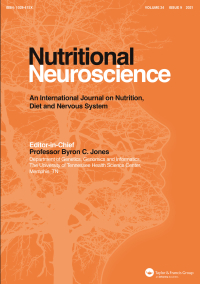
Six-month intervention with wild blueberries improved speed of processing in mild cognitive decline: a double-blind, placebo-controlled, randomized clinical trial.
2022 Sep 06 Nutritional Neuroscience Cheatham CL, Canipe LG, Millsap G, Stegall JM, Chai SC, Sheppard KW, et al.
Randomised Controlled Trial Blueberry Brain Health Cognitive FunctionConsumption of wild blueberries over six months can improve cognitive performance and speed of processing information amongst older adults.
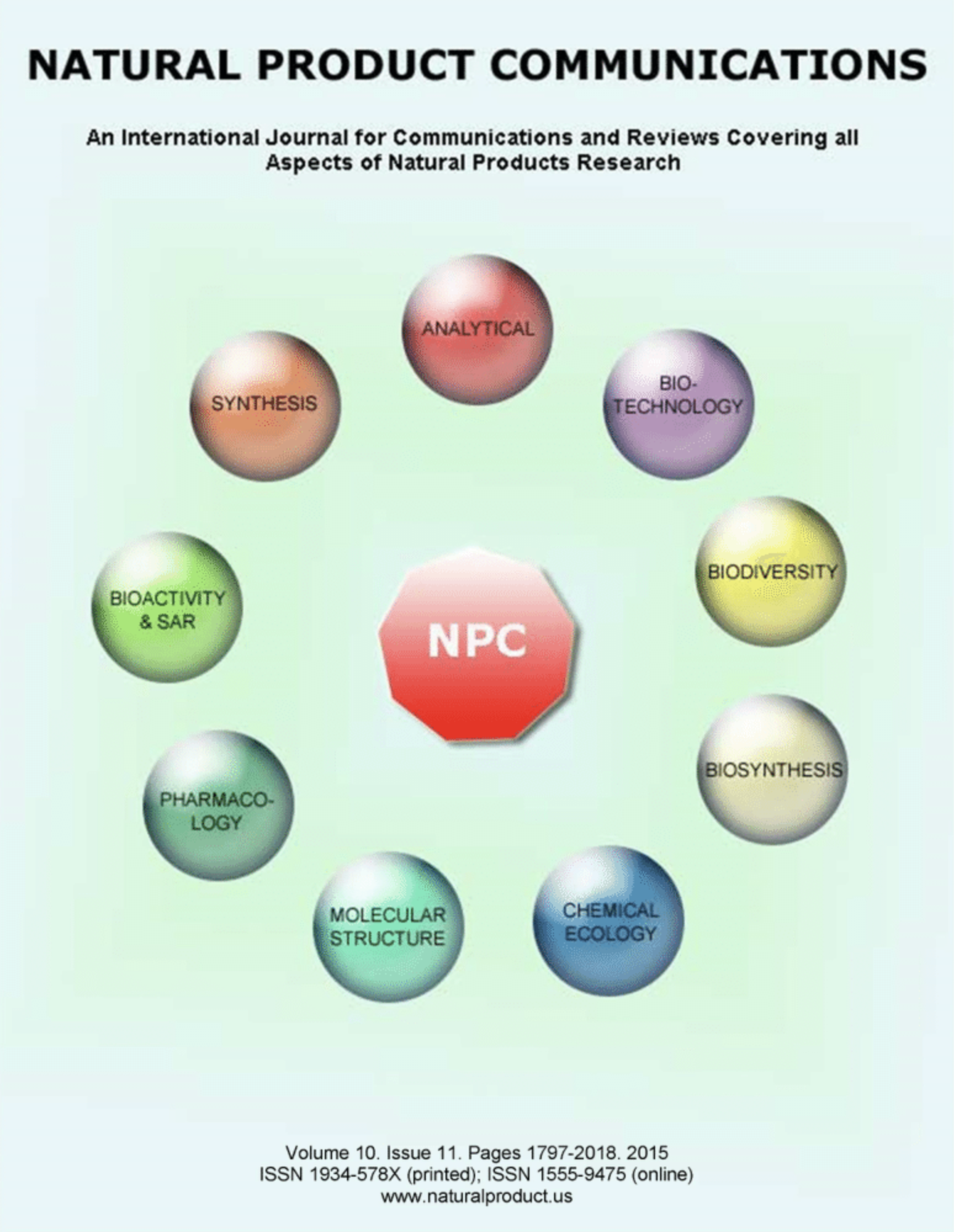
Walnut (Juglans regia L.) Oligopeptide Effects on Enhancing Memory, Cognition and Improving Sleep Quality in Teenagers and Elderly People in a Randomized Double-Blind Controlled Trial
2022 Mar Natural Product Communications Yeh AL, Chao CL, Huang WF, Lin HC, Wang CJ
Randomised Controlled Trial Sleep Cognitive Function WalnutWalnut oligopeptide improves cognitive performance and sleep quality among teenagers and elderly people.
Study Protocols
Published study protocols are detailed plans that outline the objectives, methodology, statistical analyses, and organisation of a research study that have been made publicly available for others to review and use as a reference.

Efficacy and safety of acupuncture combined with Chinese herbal medicine traditional Chinese medicine for poststroke cognitive impairment
2022 Mar 04 Medicine Wang Y, Guo S, Xiao ML, Zhang H
The systematic review will provide a new paradigm for acupuncture combined with TCM in the intervention of PSCI, and further provide scientific evidence for the efficacy and safety of acupuncture combined with TCM in the treatment of PSCI.
Study Protocol Cognitive Function Chinese Herbal Medicine Acupuncture
Effect of acupuncture treatment on cognitive impairment after traumatic brain injury in adults
2021 Dec 23 Medicine Li N, Wang R, Ai X, Guo X, Liu J, Sun L, et al.
This review will summarize the current evidence of acupuncture on cognitive impairment (CI) of traumatic brain injury (TBI) outcomes and provide guidance for clinicians and patients to select acupuncture for CI of TBI in adults.
Study Protocol Traumatic Brain Injury (TBI) Cognitive FunctionPresentation Slides

Randomised Controlled Trial
Walnut consumption while doing concurrent training improves strength, sleep quality, standing support, cognitive performance and postural balance in elderly men.
Kamoun A, Yahia A, Farjallah MA, Maaloul R, Marzougui H, Bouaziz M, Souissi N, Elleuch MH, Hammouda O

Review Article
Almond consumption has beneficial impacts on cardiovascular diseases, diabetes, obesity, and it can improve cognitive performance and protect against skin aging.
Ouzir M

Randomised Controlled Trial
A beverage formula containing fish roe, snow fungus, and yeast enhances cognitive function by improving memory, response times, and emotional recognition, while reducing anxiety and fatigue.
Lin YK, Lin YH, Chiang CF, Jingling L

Meta-Analysis
Blueberry consumption significantly improves two-back test accuracy, suggesting potential cognitive benefits.
Soveid N, Barkhidarian B, Moradi S, Gholami F, Rasaei N, Himmerich H, Mirzaei K

Review Article
Eating apples and apple products can enhance health by protecting the cardiovascular system, combating cancer and cognitive impairment, and improving hair growth, among other beneficial effects.
Zhang Y, Zeng M, Zhang X, Yu Q, Zeng W, Yu B, Gan J, Zhang S, Jiang X

Randomised Controlled Trial
Consumption of blueberry powder daily improves vascular function, cognitive abilities, and reduces blood pressure in healthy older individuals.
Wood E, Hein S, Mesnage R, Fernandes F, Abhayaratne N, Xu Y, Zhang Z, Bell L, Williams C, Rodriguez-Mateos A
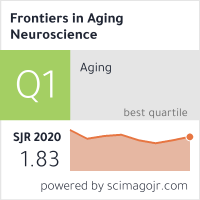
Review Article
Honey exhibits multifaceted benefits for brain health, acting as a memory booster, neuroprotective agent, anti-stress, and anti-nociceptive substance, fostering potential therapeutic applications to enhance overall cognitive well-being.
Zamri NA, Ghani N, Ismail CAN, Zakaria R, Shafin N

Review Article
Green tea's catechins demonstrate therapeutic effects against neurodegenerative diseases via anti-inflammatory, antioxidant actions, and activating diverse brain cellular pathways.
Afzal O, Dalhat MH, Altamimi ASA, Rasool R, Alzarea SI, Almalki WH, Murtaza BN, Iftikhar S, Nadeem S, Nadeem MS, Kazmi I

Review Article
Walnuts, rich in anti-inflammatory ingredients, potentially regulate neuroinflammation, improve cognitive function, reduce oxidative stress, and maintain gut health, thereby suggesting their use against neurodegenerative diseases.
Tan B, Wang Y, Zhang X, Sun X

Randomised Controlled Trial
Consumption of wild blueberries over six months can improve cognitive performance and speed of processing information amongst older adults.
Cheatham CL, Canipe LG, Millsap G, Stegall JM, Chai SC, Sheppard KW, Lila MA
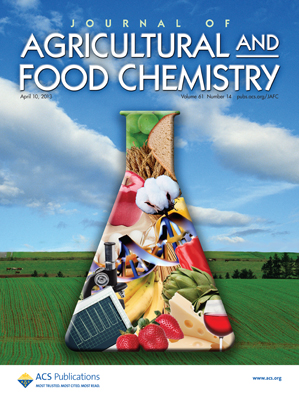
Review Article
Jujube nutrients may offer potential therapeutic benefits including antioxidant, antibacterial, anti-inflammatory functions, and improving sleep quality and learning.
Hua Y, Xu X, Guo S, Xie H, Yan H, Ma X, Niu Y, Duan JA

Randomised Controlled Trial
Walnut oligopeptide improves cognitive performance and sleep quality among teenagers and elderly people.
Yeh AL, Chao CL, Huang WF, Lin HC, Wang CJ

Review Article
Fresh Hass avocados have been found to reduce cardiovascular disease risk, assist weight loss, improve cognitive function, and promote colonic microbiota health.
Dreher ML, Cheng FW, Ford NA

Cohort Study
The consumption of avocado is associated with better cognitive function in older adults.
Cheng FW, Ford NA, Taylor MK

Systematic Review
Chocolate and cocoa product consumption significantly improved lipid profiles, but had no significant effect on other heath aspects such as cognitive function and blood pressure.
Tan TYC, Lim XY, Yeo JHH, Lee SWH, Lai NM
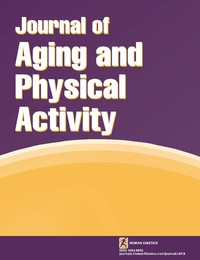
Systematic Review
High-quality evidence suggests that Tai Chi is an effective intervention for preventing falls in community settings, and through its benefits on cognitive functioning.
Nyman SR
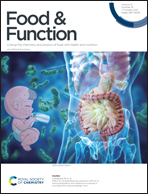
Clinical Study
Consumption of blueberries can alter levels of certain beneficial compounds in the blood, potentially contributing to improved cognitive function in older adults.
Rutledge GA, Sandhu AK, Miller MG, Edirisinghe I, Burton-Freeman BB, Shukitt-Hale B

Review Article
Tian Ma, a traditional Chinese medicine, shows promise as a complementary therapy for aging-related diseases, including Alzheimer's and cerebrocardiovascular diseases.
Heese K
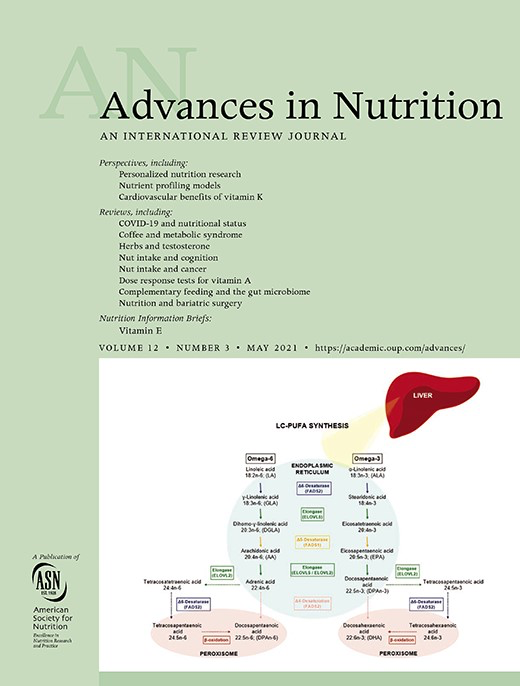
Systematic Review
Regular walnut consumption is consistently linked to improved cognitive performance in adults, particularly those at higher risk of cognitive decline.
Lauren E Theodore, Nicole J Kellow, Emily A McNeil, Evangeline O Close, Eliza G Coad, Barbara R Cardoso,

Randomised Controlled Trial
Daily supplementation of Matcha Green Tea Powder is found to enhance cognitive functions in elderly women.
Sakurai K, Shen C, Ezaki Y, Inamura N, Fukushima Y, Masuoka N, Hisatsune T
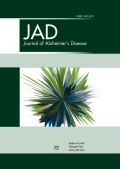
Clinical Study
High phenolic early harvest extra virgin olive oil shows notable improvement in cognitive function compared to a moderate phenolic version and the Mediterranean diet alone.
Tsolaki M, Lazarou E, Kozori M, Petridou N, Tabakis I, Lazarou I, Karakota M, Saoulidis I, Melliou E, Magiatis P
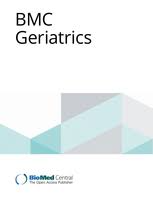
Cohort Study
Habitual and high-frequency tea consumption, particularly green tea, is associated with a reduced prevalence of cognitive impairment in middle-aged and older individuals.
Zhang J, Wang A, Zhang X, Chen S, Wu S, Zhao X, Zhang Q

Randomised Controlled Trial
Daily consumption of decaffeinated green tea catechins may enhance working memory.
Baba Y, Inagaki S, Nakagawa S, Kaneko T, Kobayashi M, Takihara T

Systematic Review
The study shows the promising potential of Suan Zao Ren as a multi-effect traditional Chinese medicine derived from the seeds of Ziziphus Jujuba.
Su-Rong He, Chong-Bo Zhao, Jing-Xia Zhang, Jing Wang, Bo Wu, Chun-Jie Wu,

Systematic Review
Acupuncture plus drug therapy may have a more beneficial effect for Alzheimer's disease patients than drug therapy alone on general cognitive function in the short and medium term and on Activities of Daily Living scores in the medium term.
Wang, Y. Y., Yu, S. F., Xue, H. Y., Li, Y., Zhao, C., & Jin, Y. H.
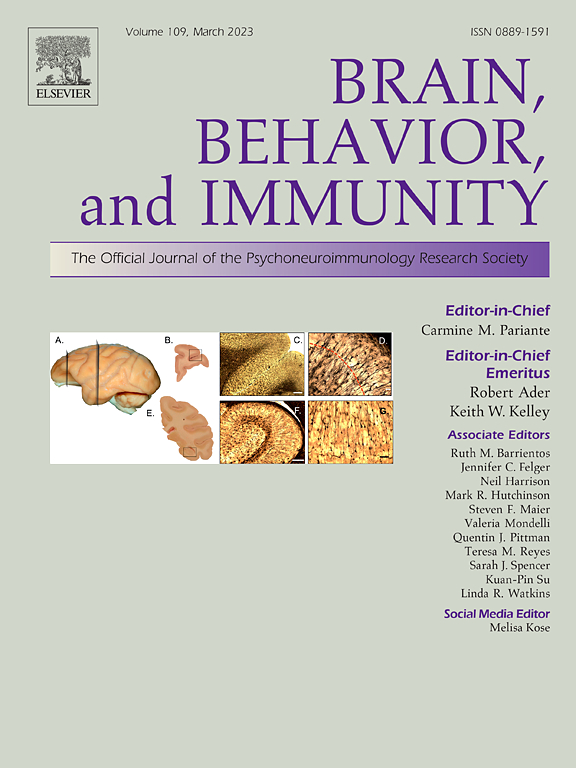
Systematic Review
Blueberries and their products may improve certain measures of cognitive performance, particularly memory, and positively affect mood.
Travica N, D'Cunha NM, Naumovski N, Kent K, Mellor DD, Firth J, Georgousopoulou EN, Dean OM, Loughman A, Jacka F, Marx W

Systematic Review
These reports suggest the benefits of a walnut-enriched diet in brain disorders and in other chronic diseases, due to the additive or synergistic effects of walnut components for protection against oxidative stress and inflammation in these diseases.
Chauhan A, Chauhan V.

Randomised Controlled Trial
Daily avocado consumption improves attentional inhibition and increases serum lutein concentrations, irrespective of changes in lutein status, in adults with obesity.
Edwards CG, Walk AM, Thompson SV, Reeser GE, Erdman JW, Burd NA, Holscher HD, Khan NA

Review Article
Cocoa and cocoa products, enriched with polyphenols, have potential health benefits including enhanced vascular function, cancer prevention, and improvement in learning and memory.
E S, Panjikkaran ST, L SC, R RP

Randomised Controlled Trial
Our study offers the first evidence of the positive contribution of tea drinking to brain structure and suggests a protective effect on age-related decline in brain organisation.
Li J, Romero-Garcia R, Suckling J, Feng L.
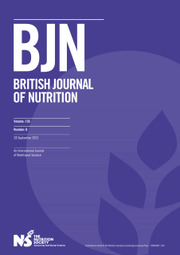
Randomised Controlled Trial
Dark chocolate with high cocoa content can affect colonic functionality and stimulate certain brain regions in healthy adults.
Fox M, Meyer-Gerspach AC, Wendebourg MJ, Gruber M, Heinrich H, Sauter M, Woelnerhanssen B, Koeberle D, Juengling F

Randomised Controlled Trial
Daily consumption of tart cherry juice may enhance cognitive abilities in older adults, likely due to reduction of hypertension, inflammation, and oxidative stress.
Chai SC, Jerusik J, Davis K, Wright RS, Zhang Z

The consumption of epicatechin, plentiful in foods like cocoa, positively influences memory, executive function, and processing speed, particularly in older adults.
Haskell-Ramsay C, Schmitt J, Actis-Goretta L
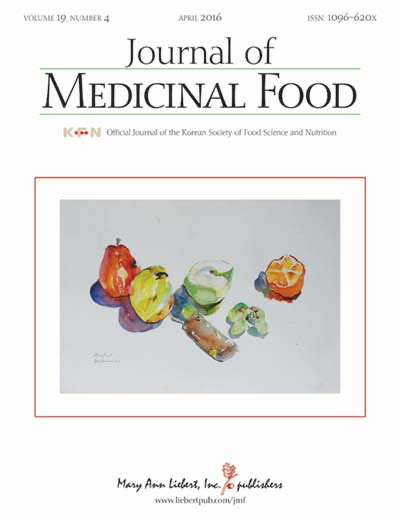
Randomised Controlled Trial
Tremella fuciformis, as a nutritional supplement, safely improved subjective memory complaints and cognitive functions in individuals suffering from subjective cognitive impairment.
Ban S, Lee SL, Jeong HS, Lim SM, Park S, Hong YS, Kim JE

Systematic Review
Green tea consumption was shown to reduce psychopathological symptoms like anxiety and was also shown to effect cognition, with noted benefits for memory and attention. Green tea was also linked with the activation of working memory as seen in functional MRI.
Mancini E, Beglinger C, Drewe J, Zanchi D, Lang UE, Borgwardt S

Review Article
Jujube possesses neuroprotective activities, including protecting neuronal cells against neurotoxin stress, stimulating neuronal differentiation, increasing expression of neurotrophic factors, and promoting memory and learning.
Chen J, Liu X, Li Z, et al.
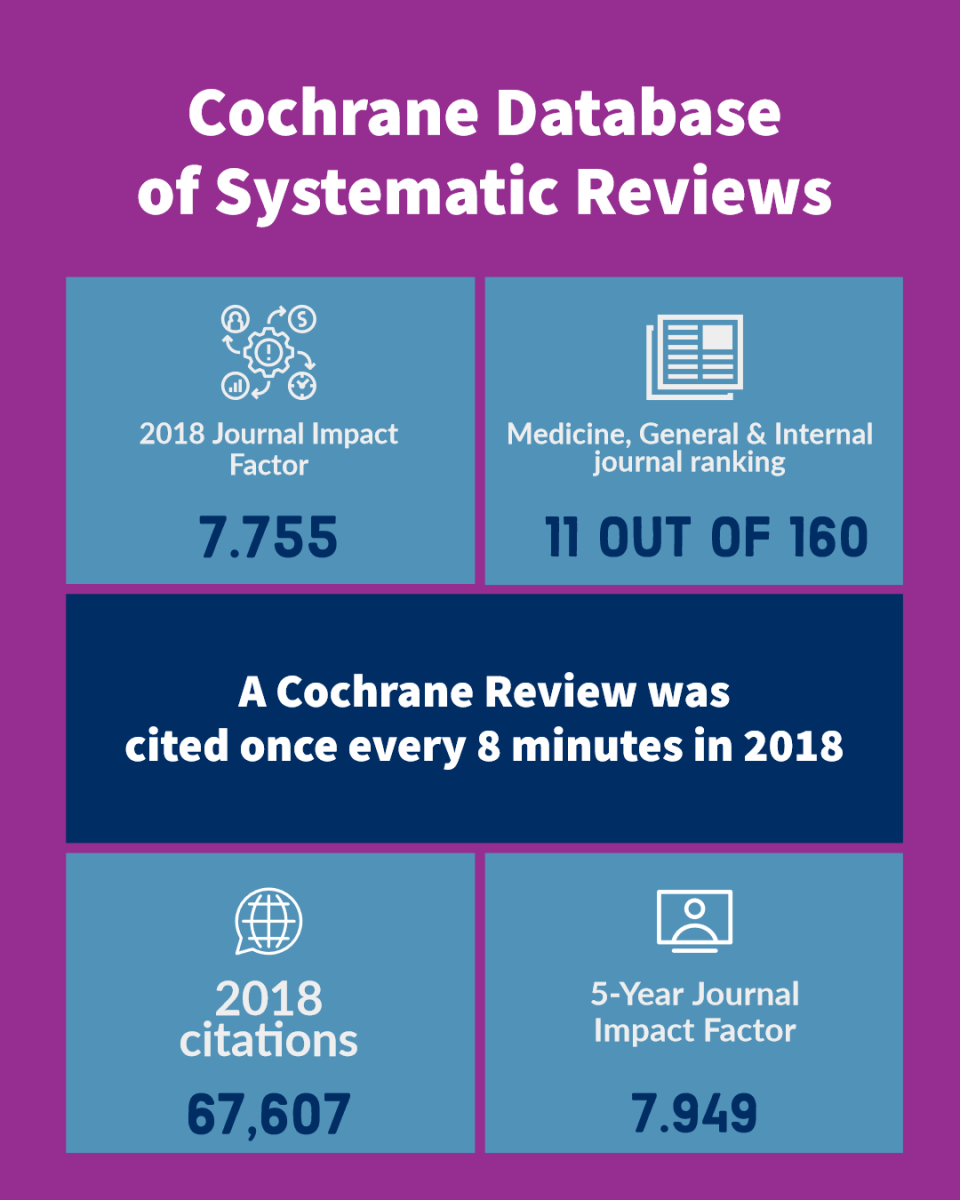
Systematic Review
Acupuncture may have beneficial effects on improving dependency, global neurological deficiency, and some specific neurological impairments for people with stroke in the convalescent stage, with no obvious serious adverse events.
Yang A, Wu HM, Tang JL, Xu L, Yang M, Liu GJ.

Systematic Review
Plums display anti-inflammatory, antioxidant properties and can enhance memory, and their consumption shows potential health benefits for cognitive function, bones, and cardiovascular elements.
Igwe EO, Charlton KE

Systematic Review
Acupuncture has been found potentially more effective than drugs in improving cognitive function and daily life in Alzheimer's disease patients, while also demonstrating safety.
Zhou, J., Peng, W., Xu, M., Li, W., & Liu, Z.
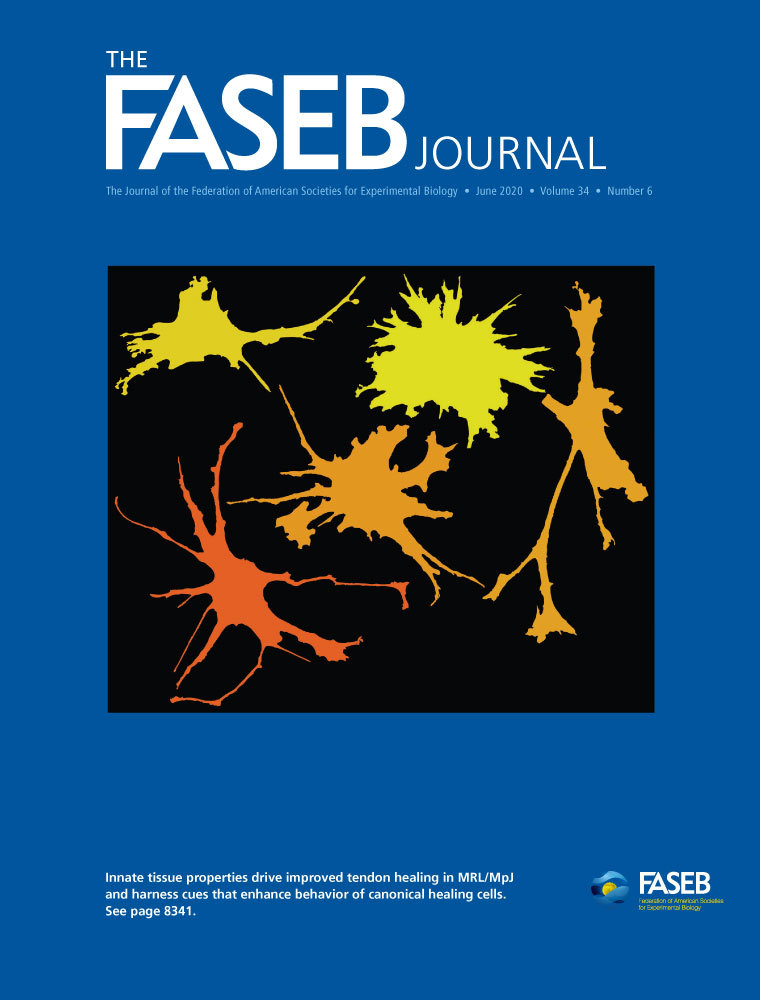
Review Article
Serotonin function, influenced by vitamin D and omega-3 fatty acids, plays a critical role in neuropsychiatric disorders and certain behavioral functions.
Patrick RP, Ames BN
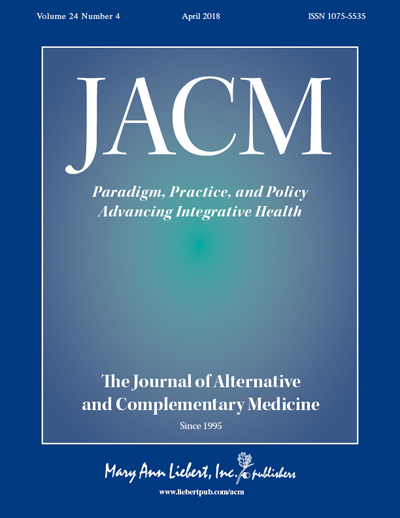
Systematic Review
This meta-analysis suggests that acupuncture had positive effects on cognitive function after stroke.
Fang Liu, Zhuang-Miao Li, Yi-Jing Jiang, and Li-Dian Chen.

Experimental Study
Honey, specifically its polyphenols, show promising signs of enhancing memory and counteracting neurodegenerative diseases by reducing oxidative stress and neuroinflammation.
Mijanur Rahman M, Gan SH, Khalil MI
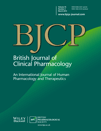
Review Article
Cocoa and chocolate, rich in antioxidant molecules like epicatechin, enhance brain health, stimulate brain perfusion, and reduce the risk of Alzheimer's disease and stroke.
Nehlig A
Executive Summary
Write an executive summary in the form of a blog article on the topic of "Research into Chinese medicine treatment for Cognitive Function" summarising the research below and using language that can be easily understood by patients and avoiding medical jargon using a professional and caring tone of voice.
Write an executive summary in the form of a blog article on the topic of "Researched Chinese medicine treatments for Cognitive Function" summarising the research below in an objective and easy to understand way, and using language that can be easily understood by patients. Group the article into Chinese medicine treatments first, followed by nutrition and other treatments. Avoid using medical jargon and use a professional and caring tone of voice.
Write me a concise but easy to understand executive summary on the topic of "Chinese medicine treatments for Cognitive Function" based on the following research that I will give you. Your summary should be 2 paragraphs long in Australian English spelling and include references to the studies.
A Randomised Controlled Trial published in 2024 in the journal Aging Clinical and Experimental Research found that Walnut consumption while doing concurrent training improves strength, sleep quality, standing support, cognitive performance and postural balance in elderly men. In the study, twenty healthy elderly men were grouped into two randomly controlled cohorts. There were three training sessions per week featuring a concurrent combination of strength and endurance training. One group received a diet supplemented with 15 grams per day of walnuts (CTW) over six weeks while the other didn't (CT). Their strength, sleep quality, cognitive performance and postural balance were evaluated using an isokinetic strength test, Spiegel questionnaire, Montreal cognitive assessment and balance measurements respectively, 48 hours before and after the intervention period. The results pointed that both groups experienced significant improvements in strength and sleep quality with CTW showing a greater increase in sleep quality. CTW group showed improvements in cognitive performance and postural balance while CT group did not see these benefits. Hence it's observed that combination of concurrent training and walnut consumption was found to be effective in improving strength, sleep quality, cognitive performance and postural balance in elderly men.
A Review Article published in 2023 in the journal Nutrire found that Almond consumption has beneficial impacts on cardiovascular diseases, diabetes, obesity, and it can improve cognitive performance and protect against skin aging. The methodology employed in this study included analyzing a range of clinical studies centered on the health benefits linked to the consumption of sweet almond nuts. Various health outcomes correlated with almond consumption were investigated such as body weight, food intake, blood pressure, blood lipid composition, glucose and insulin levels, oxidative status, liver enzymes, and some inflammation biomarkers. The discussion of the results reveals that almond consumption has been found to create favorable alteration in aspects like body weight, food intake, blood pressure, blood lipid composition, glucose, and insulin levels, as well as oxidative status, liver enzymes, and inflammation biomarkers. These findings highlight the beneficial impact of almonds on multiple health issues including cardiovascular diseases, diabetes, and obesity. Additionally, the consumption of almonds has been associated with improved cognitive performance and protection against skin photodamage and aging.
A Randomised Controlled Trial published in 2023 in the journal Nutrients found that A beverage formula containing fish roe, snow fungus, and yeast enhances cognitive function by improving memory, response times, and emotional recognition, while reducing anxiety and fatigue. In the study, 64 volunteers were divided into two equal groups, with one group consuming a placebo and the other consuming the formula beverage for a duration of 8 weeks. Cognitive testing was performed initially and at two follow-up points, weeks 4 and 8. Variables tested included memory recall, identification of objects over time, response times, emotional recognition from facial expressions and self-reported anxiety and fatigue levels. The results demonstrated that by weeks 4 and 8, those who consumed the formula beverage showed notable advancements in cognitive functions. These individuals were able to remember objects better and had quicker response times. Notably, they also registered a significant improvement in recognizing happy faces and displayed reduced anxiety and fatigue. Overall, the beverage holds promise as an intervention tool for cognitive improvement in individuals reporting subjective cognitive issues.
A Meta-Analysis published in 2023 in the journal CNS & Neurological Disorders - Drug Targets found that Blueberry consumption significantly improves two-back test accuracy, suggesting potential cognitive benefits. Methodology: A comprehensive search was conducted in April 2021 for relevant clinical trials on blueberry supplementation and its effects on cognitive performance and mood. The search was conducted through PubMed/Medline, Scopus, Embase, and Google Scholar, and the random effect size was used to estimate the pooled effect size. Cochrane Q test and I-squared tests were used to evaluate heterogeneity between studies, and a subgroup analysis was done to detect potential sources of such heterogeneity. Fourteen randomized trials were included in the quantitative analysis, and six were pooled for statistical analysis. Results: Blueberry intervention did not produce any significant impact on mood state score, attention task reaction time, or on the percentages of attention task accuracy. Similarly, it had no significant effect on one-back test accuracy. However, a noticeable positive effect was detected in two-back test accuracy, indicating possible cognitive benefits associated with blueberry consumption.
A Review Article published in 2023 in the journal Food Science & Nutrition found that Eating apples and apple products can enhance health by protecting the cardiovascular system, combating cancer and cognitive impairment, and improving hair growth, among other beneficial effects. The study took a comprehensive approach to evaluate the health benefits of apples and apple products by conducting a literature review of relevant clinical, epidemiological, in vitro, and in vivo studies. It involved an exhaustive search of the PubMed database for a ten-year period, sourcing studies that reported on the effects of different apple products: juices, purees, pomaces, dried apples, and extracts rich in apple bioactives. The findings indicate that the consumption of apples and their derivations contributes to multiple aspects of human health. These products exhibited a range of protective effects against diseases such as cardiovascular conditions and cancer. Moreover, they were associated with enhanced cognitive function, facilitated hair growth, the healing of burn wounds, and improved oral health. The use of apples and apple-based products also helped to reduce UV-induced skin pigmentation, alleviated the symptoms of atopic dermatitis and cedar hay fever, and even prevented skin flushing caused by niacin. The beneficial impacts of apple consumption can be attributed to a variety of mechanisms including, but not limited to, vascular endothelial protection, blood lipid regulation, anti-inflammatory and antioxidant effects, as well as anti-invasion and antimetastatic tendencies. These results provide a significant reference point for various fields, including medicine and nutrition, contributing to their development and application.
A Randomised Controlled Trial published in 2023 in the journal The American Journal of Clinical Nutrition found that Consumption of blueberry powder daily improves vascular function, cognitive abilities, and reduces blood pressure in healthy older individuals. This double-blind, parallel randomized controlled trial engaged 61 healthy older individuals aged between 65 to 80 years old. Participants were given either 26g of freeze-dried wild blueberry (WBB) powder, comprising 302 mg anthocyanins, or a similar placebo with zero mg anthocyanins. Measurements were made for endothelial function, cognitive function, arterial stiffness, blood pressure, cerebral blood flow, gut microbiome, and blood parameters, both at the start of the trial and again following 12 weeks of daily consumption. In addition, plasma and urinary polyphenol metabolites were analyzed through the use of microelution solid-phase extraction combined with liquid chromatography-mass spectrometry. In the WBB group, there was a notable increase in endothelial function and a decrease in 24-hour ambulatory systolic blood pressure, when compared to the placebo group. Enhanced immediate recall on the auditory verbal learning task was also observed, along with better accuracy on a task-switch task following administering of WBB. Notably, the total 24-hour urinary excretion of polyphenols also significantly increased in the WBB group comparative to the control group. In contrast, there were no discernible changes in cerebral blood flow or gut microbiota composition. These findings imply that WBB polyphenols could contribute to reducing future cardiovascular disease risk in older populations, and might enhance memory processes and executive functioning in older adults at risk of cognitive decline.
A Review Article published in 2023 in the journal Frontiers in Aging Neuroscience found that Honey exhibits multifaceted benefits for brain health, acting as a memory booster, neuroprotective agent, anti-stress, and anti-nociceptive substance, fostering potential therapeutic applications to enhance overall cognitive well-being. This review scrutinizes 34 original articles exploring the impact of honey on brain health. Honey, traditionally known as a natural sweetener, emerges as a versatile substance with applications in nutrition, health supplementation, and brain health enhancement. The analysis identifies four key benefits: memory enhancement, neuroprotection, stress reduction, and pain alleviation. The review emphasizes the growing interest in understanding the mechanisms that underlie these effects, paving the way for potential therapeutic roles of honey in promoting cognitive well-being. The literature review underscores the significant role of honey in brain health research, shedding light on its diverse benefits, including memory improvement, neuroprotection, stress mitigation, and pain relief. The emphasis on unraveling the underlying mechanisms reflects a broader interest in establishing honey's therapeutic potential for enhancing overall brain health. This comprehensive exploration of honey's effects on cognition opens avenues for developing novel therapeutic strategies harnessing honey's natural properties.
A Review Article published in 2022 in the journal Molecules found that Green tea's catechins demonstrate therapeutic effects against neurodegenerative diseases via anti-inflammatory, antioxidant actions, and activating diverse brain cellular pathways. The research primarily evaluates the effect of polyphenolic compounds found in green tea, known as catechins, on neurodegenerative diseases. By conducting several interventional and observational studies on humans, the research explores the anti-cancer, anti-obesity, antidiabetic, anti-inflammatory, and neuroprotective properties of these compounds. The biological, pharmacological, antioxidant, and metal chelating abilities of catechins, particularly their influence on different cellular pathways within the brain, are intensively studied. The results elucidate that catechins exhibit multiple neuroprotective effects. Their anti-inflammatory and antioxidant properties help to inhibit excessive production of cytokines, and inflammatory pathways, while also controlling metal ions and free radicals. Researchers have further established that catechins may curb the phosphorylation of the tau protein and aggregation of amyloid beta, both key markers in neurodegenerative diseases. Additionally, these compounds show potential in reducing alpha-synuclein levels and augmenting dopamine levels. Hence, they significantly contribute to the prevention and treatment of neurodegenerative diseases, including Alzheimer's, Parkinson's, multiple sclerosis, and cognitive deficits.
A Review Article published in 2022 in the journal Nutrients found that Walnuts, rich in anti-inflammatory ingredients, potentially regulate neuroinflammation, improve cognitive function, reduce oxidative stress, and maintain gut health, thereby suggesting their use against neurodegenerative diseases. The methodology of the research includes a comprehensive review of the existing studies and experiments on walnuts and their active ingredients. These ingredients include large amounts of unsaturated fatty acids, peptides, and phenolic compounds known for their anti-inflammatory effects. Various studies covering the effect of these ingredients on the brain health of both rats and humans were analyzed. Specifically, the regulation of microglia activation induced by substances like amyloid β or lipopolysaccharides, the inhibition of peripheral inflammation led by macrophages, and the effects on oxidative stress and gut microbes were scrutinized. In the discussion of results, the studies presented compelling evidence of the beneficial effects of walnuts and their components on neuroinflammation and potential ways to counteract neurodegeneration. There seems to be a consensus in the experimental investigations that the walnut’s active ingredients can reduce inflammation and oxidative stress while maintaining gut homeostasis. They also show promise in improving cognitive functions and memory in both rats and humans. However, it was noted that the evidence from human clinical studies is not as abundant or conclusive as the experimental work, although the potential of walnut-based functional foods in mitigating neurodegenerative diseases was recognized.
A Randomised Controlled Trial published in 2022 in the journal Nutritional Neuroscience found that Consumption of wild blueberries over six months can improve cognitive performance and speed of processing information amongst older adults. The methodology of this research involved conducting a double-blind, randomized placebo-controlled trial where participants with cognitive issues ascertained by Montreal Cognitive Assessment scores were asked to consume wild blueberry or placebo powder daily for a 6-month period. There was also a separate reference group involved, comprised of individuals devoid of any cognitive issues. These individuals were tested at the commencement and end of the trial using the Cambridge Neurological Test Automated Battery and an electrophysiological paradigm named event-related potentials. The results presented disclosed a significant improvement in the speed of processing information in the group consuming blueberries compared to the placebo group over the 6-month intervention period. Additionally, the speed of this group's processing was re-established to the level of the reference group, revealing the restoration of cognitive abilities. The most distinct enhancement was noted in participants aged between 75-80 years in the blueberry group.
A Review Article published in 2022 in the journal Journal of Agricultural and Food Chemistry found that Jujube nutrients may offer potential therapeutic benefits including antioxidant, antibacterial, anti-inflammatory functions, and improving sleep quality and learning. The methodology used for this study involves a comprehensive review of existing research about Wild jujube, giving particular focus on its phytonutrients, biological functions, metabolism of bioactive compounds, and applications. The study does not seem to detail a specific experimental procedure, but instead bases its conclusions on existing literature. Various parts of the wild jujube plant, such as the fruits, seeds and leaves, were examined for their potential role as food, medicine, or health care aids. The results from the review suggest that the different parts of the wild jujube plant play many roles. The fruits have been noted for their antioxidant, antibacterial, and anti-inflammatory properties, and as ingredients preventing aging. The mature seeds have been found to have potential beneficial effects on central nervous system diseases, particularly in the treatment of insomnia and the enhancement of learning and memory.
A Randomised Controlled Trial published in 2022 in the journal Natural Product Communications found that Walnut oligopeptide improves cognitive performance and sleep quality among teenagers and elderly people. In this randomized double-blind placebo-controlled clinical trial, 36 individuals (comprised of teenagers and elderly people) were divided into groups and given either a placebo or walnut oligopeptide (WO) at low or high dosages. The division was random and the dosage groups were composed of 6 individuals from each population group (teenagers and elderly). The administration of either substance was over a period of 90 days. The results showed notable improvements in subjects who were administered WO. Test scores on the Wechsler Adult Intelligence Scale (WAIS) showed a significant increase, indicating an improvement in cognitive ability. In addition, there was a decrease in the scores on the global Pittsburgh Sleep Quality Index (PSQI), suggesting an improvement in the quality of sleep among the subjects. Furthermore, average scores in Chinese, Mathematics, and English were significantly improved from the baseline scores among the teenagers in the WO administered group. Thus, these findings support the potential use of WO in nutritional intervention to boost memory, cognitive ability, and sleep quality in teenagers and elderly people.
A Review Article published in 2021 in the journal Nutrients found that Fresh Hass avocados have been found to reduce cardiovascular disease risk, assist weight loss, improve cognitive function, and promote colonic microbiota health. The methodology used in this comprehensive review entailed conducting 19 clinical trials, five observational studies, and examination of several biological mechanisms. These focused on understanding and identifying the primary health effects of Hass avocados in different population groups such as healthy overweight or obese adults, older normal-weight adults, and overweight or obese women. The effects were thoroughly measured in terms of cardiovascular health, body weight, cognitive function, and colonic microbiota health. The primary health effects of Hass avocados were then linked to its unique nutritional properties - the unsaturated to saturated fat ratio, the presence of multifunctional prebiotic and viscous fiber, its low energy density, and the increase in carotenoid absorption facilitated by its oleic acid and water emulsion, particularly when combined with low-fat fruits and vegetables. The results indicated significant positive effects from consuming Hass avocados, especially when incorporated into a healthy dietary plan like the Mediterranean diet. Consumption of avocados was found to lead to reduced cardiovascular disease risk in healthy overweight or obese adults, primarily by undesirable cholesterol profiles and promoting vascular health. For overweight or obese women, it helped in weight reduction and lessened visceral fat tissue. The consumption of avocados improved cognitive function in both older normal-weight adults and young to middle age overweight adults, particularly their executive function. It was also found to enhance colonic microbiota health in overweight or obese individuals by fostering healthier microflora and fecal metabolites.
A Cohort Study published in 2021 in the journal Frontiers in Nutrition found that The consumption of avocado is associated with better cognitive function in older adults. In the methodology, the researchers conducted a cross-sectional study involving 2,886 participants aged 60 or older from the National Health and Nutrition Examination Survey 2011–2014. These participants were classified into two groups: those who consumed avocado or guacamole, and those who did not. Cognitive performance was evaluated using tests for immediate and delayed recall, the Animal Fluency test, and the Digit Symbol Substitution Test, with education-dependent z-scores calculated for each participant as the education level can impact cognitive function. To control for potential influencing factors, comparisons were made between consumers and non-consumers with independent sample t-tests and advanced statistical methods like ANCOVA. The study found that those who consumed avocado showed significantly better scores across every cognitive test and the global cognitive score compared to non-consumers. Even after adjustments for potential confounders, the positive differences persisted. These findings support the conclusion that consumption of avocado correlates positively with improved cognitive function amongst elderly adults.
A Systematic Review published in 2021 in the journal Nutrients found that Chocolate and cocoa product consumption significantly improved lipid profiles, but had no significant effect on other heath aspects such as cognitive function and blood pressure. A systematic search was performed on academic databases such as MEDLINE, EMBASE, and the Cochrane Central Register of Controlled Trials. The researchers utilized a precise search strategy and keywords to gather the most relevant studies and evidence. The studies focused on a variety of health effects related to the consumption of chocolate and cocoa products, like their effects on skin, cardiovascular health, anthropometry, cognitive function, blood glucose levels, and overall quality of life. The research revealed considerable improvements in lipid profiles (particularly in triglycerides) among those who consumed chocolate or cocoa products, compared to controls. However, there were no significant differences observed in other outcome parameters related to skin health, blood pressure, cognitive function, anthropometry, blood glucose levels, and quality of life between the chocolate/cocoa consumption group and the control group. The subjects generally accepted chocolate well, with gastrointestinal disturbances and unpalatability reported as their main concerns.
A Systematic Review published in 2021 in the journal Journal of Aging and Physical Activity found that High-quality evidence suggests that Tai Chi is an effective intervention for preventing falls in community settings, and through its benefits on cognitive functioning. Tai Chi can be highly effective for preventing falls. Tai Chi is a safe and accessible form of exercise. Indeed, over 500 trials and 120 systematic reviews have been conducted on the health benefits of Tai Chi and no studies have found that Tai Chi worsens a condition (Huston & McFarlane, 2016). In addition, a systematic review of adverse event reporting from Tai Chi trials found Tai Chi is unlikely to result in serious adverse events but may result in minor musculoskeletal aches and pains (Wayne, Berkowitz, Litrownik, Buring, & Yeh, 2014). For older adults with osteoporosis with vertebral fractures, it is recommended that they first receive advice on spine sparing techniques and that they avoid repetitive, weighted, or rapid end range flexion or extension of the spine (Skelton & Mavroeidi, 2018). Frailer older adults, those with a high falls risk or multiple comorbid conditions affecting balance or strength, are recommended to only practice Tai Chi under the supervision of an instructor trained in adapting and tailoring the exercise prescription (Skelton & Mavroeidi, 2018).
A Clinical Study published in 2021 in the journal Food & Function found that Consumption of blueberries can alter levels of certain beneficial compounds in the blood, potentially contributing to improved cognitive function in older adults. The research method involved a study on 38 healthy older adults between 60 to 75 years of age, over a 90-day period. Participants were randomly assigned to two groups – a blueberry group and a control group. The blueberry group received 24 grams of freeze-dried blueberries, equivalent to a cup of fresh berries, every day, while the control group received no treatment. Blood samples were taken from the subjects before breakfast and two hours post-breakfast, on the start day, the 45th day and the 90th day. Additionally, the study subjects also took cognitive tests on these days. Results showed that after 90 days, there were significant changes in the levels of circulating phenolic compounds, including such compounds as hippuric acid, phloroglucinaldehyde and syringic acid, among others, in the blood of those who had consumed blueberries. Moreover, improvements in cognitive functions were observed and these changes were linked to alterations in the concentrations of specific phenolic compounds like ferulic acid-glucuronide, syringic acid, and malvidin-3-galactoside. These results suggest a correlation between daily blueberry consumption, changes in phenolic compounds in the blood, and improvements in brain performance.
A Review Article published in 2020 in the journal Evidence-Based Complementary and Alternative Medicine found that Tian Ma, a traditional Chinese medicine, shows promise as a complementary therapy for aging-related diseases, including Alzheimer's and cerebrocardiovascular diseases. This study utilized previous research to methodically analyze the efficacy and safety of Tian Ma in treating aging-related diseases. Investigations spanned across various well-structured disease models, with particularly close attention paid to Alzheimer's Disease. The study trialed not just on its raw form, but also explored how it performs within different herbal preparations and as pure natural extracts. The study's findings indicate that Tian Ma might present a viable alternative treatment for aging-related cerebrocardiovascular diseases and dementia. Specifically, its promising attributes were most noticeable in the context of complementary therapy for Alzheimer's Disease. The potential effectiveness of Tian Ma seems to be maintained across the various preparations, whether in herbal mixtures or as a pure natural product. The study thus concludes on a hopeful note regarding the use of Tian Ma in combatting debilitating age-linked conditions.
A Systematic Review published in 2020 in the journal Advances in Nutrition found that Regular walnut consumption is consistently linked to improved cognitive performance in adults, particularly those at higher risk of cognitive decline. The methodology of this review involved a systematic search of four different databases - Ovid MEDLINE, Scopus, CINAHL Plus, and Embase, from their inception through to April 2020. The search aimed to identify both interventional and observational studies that investigated the effect of nut intake on cognitive outcomes in adults aged 18 and above. The specific nuts studied included almonds, hazelnuts, macadamias, pistachios, walnuts, pecans, pine nuts, Brazil nuts, cashews, and peanuts. The review then selected the most relevant studies for further analysis; out of 2,374 identified articles, 22 met the criteria, with a combined participant count of 43,793. The resulting discussion of this review's findings highlighted that, despite inconsistencies due to varying study designs and types of nuts studied, regular mixed nut intake could potentially protect cognitive function in different age groups. However, more notable was the recurrent evidence found in studies focusing on groups at a higher risk of cognitive impairment, which repeatedly reported improved outcomes. Particularly, studies specifically targeting walnut consumption consistently found it positively associated with enhanced cognitive performance. The review found homogeneous results within these walnut-centred studies, with only one out of six, including two randomized controlled trials, not reporting a positive association.
A Randomised Controlled Trial published in 2020 in the journal Nutrients found that Daily supplementation of Matcha Green Tea Powder is found to enhance cognitive functions in elderly women. The research performed a randomized, double-blind, placebo-controlled trial over a period of 12 weeks. The involvement of 61 participants who were community-dwelling elderly people was arranged, and these participants were randomly assigned to either a test group receiving a daily drink containing 3 grams of Matcha Green Tea Powder or a placebo group. Assessments of their cognitive function changes were made using a psychometric test battery. Also, the participants' daily food intake was monitored and recorded using a Brief-type Self-administered Diet History Questionnaire. The results clearly indicated substantial enhancement in cognitive functions in women who were part of the active test group. It was observed in the Montreal Cognitive Assessment (MoCA) scoring scheme. An interesting pattern that came up in the dietary analysis was the significant inverse correlation between consumption of vitamin K in everyday food apart from test drinks and a change in MoCA. Overall, the study indicates that regular intake of Matcha Green Tea Powder can have protective effects against cognition decline, particularly in elderly women residing in the community.
A Clinical Study published in 2020 in the journal Journal of Alzheimer's Disease found that High phenolic early harvest extra virgin olive oil shows notable improvement in cognitive function compared to a moderate phenolic version and the Mediterranean diet alone. A randomized prospective study was conducted examining the effects of high phenolic early harvest extra virgin olive oil (HP-EH-EVOO) and moderate phenolic extra virgin olive oil (MP-EVOO) against the Mediterranean Diet (MeDi) in individuals with mild cognitive impairment. Participants were genetically tested for susceptibility to Alzheimer's disease and had their cognitive functions tested at the start and after 12 months. They were then randomly put into one of three groups: those who received HP-EH-EVOO, those who received MP-EVOO, and those who only received instructions on following the MeDi. The results showed that participants who consumed HP-EH-EVOO demonstrated better cognitive performance in almost all areas over the course of the study, compared to those who consumed MP-EVOO and those who followed the MeDi. MP-EVOO consumers also demonstrated noticeable cognitive improvement compared to the MeDi group, who exhibited worse or similar cognitive performance to their baseline in almost all areas. Moreover, participants who consumed either form of olive oil performed better in cognitive tests, regardless of their predisposition to Alzheimer's disease.
A Cohort Study published in 2020 in the journal BMC Geriatrics found that Habitual and high-frequency tea consumption, particularly green tea, is associated with a reduced prevalence of cognitive impairment in middle-aged and older individuals. The methodology of the study drew upon data from the Asymptomatic Polyvascular Abnormalities in Community study involving individuals over 40. Through a standardized questionnaire, information regarding participants' tea consumption habits – including frequency and type of tea – was collected. Cognitive function was then evaluated utilizing two recognized tests: Mini-Mental State Examination (MMSE) and Montreal Cognitive Assessment (MoCA). Two distinct participant groups were chosen for these assessments: MMSE and MoCA subgroups. The researchers found, after accounting for potential confounding factors, that usual and high frequency tea intake correlated with a decreased risk of cognitive impairment. Further analysis showed that this risk reduction was notably high for green tea drinkers than for consumers of other tea types, as indicated by the MMSE test. A similar pattern was observed in the results of the MoCA group, showing a consistent association between regular tea intake, especially green, and lower prevalence of mental decline.
A Randomised Controlled Trial published in 2020 in the journal Molecules found that Daily consumption of decaffeinated green tea catechins may enhance working memory. The study incorporated a double-blind, randomized, controlled approach to determine the effects of 336.4 mg of decaffeinated green tea catechins on cognitive function. It targeted Japanese adults, aged 50 to 69 years, exhibiting a Mini-Mental State Examination Japanese version score of over 24 and who self-identified as having cognitive decline. The experiment comprised administering a substance and then examining the cognitive function post a single dosage as well as following 12 weeks of everyday consumption. The Cognitrax testing battery was utilized to assess cognitive function. In the results, it was observed that the incorrect response rate on the Continuous Performance Test significantly fell after a single dosage of green tea catechins. After 12 weeks of regular intake, the response duration for the two-back test in Part 4 of the 4-part Continuous Performance Test reduced, indicating potential improvement in working memory. The data suggests that consuming green tea catechins daily may potentially lead to cognitive enhancements, particularly in working memory.
A Systematic Review published in 2020 in the journal Evidence-Based Complementary and Alternative Medicine found that The study shows the promising potential of Suan Zao Ren as a multi-effect traditional Chinese medicine derived from the seeds of Ziziphus Jujuba. The methodology of the research was primarily a comprehensive literature review of Ziziphi Spinosae Semen (aka Suan Zao Ren). The team explored the botanical characteristics, traditional uses, pharmacology, and discovered compounds in the seeds of Ziziphus Jujuba. In regards to the results of the review, more than 150 compounds were identified in Ziziphi Spinosae Semen. These compounds, which mainly include terpenoids, flavonoids and others, show various biological activities. It was found that the seeds are particularly prominent in having sedative and hypnotic effects. Other properties discovered include antitumor potential, improvement to learning and memory, anti-inflammatory, antioxidative, anti-aging, alongside lower blood pressure and lipid levels. Traditional usage of the seeds for the treatment of insomnia, forgetfulness, headaches and dizziness were confirmed by the review.
A Systematic Review published in 2020 in the journal Frontiers in Aging Neuroscience found that Acupuncture plus drug therapy may have a more beneficial effect for Alzheimer's disease patients than drug therapy alone on general cognitive function in the short and medium term and on Activities of Daily Living scores in the medium term. 30 RCTs (2,045 patients) were included in this review. The main finding of our review suggests acupuncture plus drug therapy may be more beneficial for AD patients than drug therapy alone in the areas of general cognitive function in the short term and medium term, and ADL skills in the medium term. However, acupuncture alone may not have superior effects when compared with drug therapy on general cognitive function, ADL skills, or incidence of adverse events. Duration of treatment may not modify the effect of acupuncture in comparison with drug therapy.
A Systematic Review published in 2020 in the journal Brain, Behavior, and Immunity found that Blueberries and their products may improve certain measures of cognitive performance, particularly memory, and positively affect mood. The systematic review process involved evaluating the results from randomized controlled trials that investigated the effects of blueberries and blueberry products on cognitive performance and mood. A total of eleven articles, encompassing twelve studies, were examined. The studies employed various forms of blueberries - freeze-dried, whole, and concentrate. Different demographic groups were considered across the studies: children, young adults, and older people with or without known cognitive impairment. The studies considered the impact of consumed or supplemented blueberries, varied in dosage and duration, on cognitive performance, specifically in relation to both short-term and long-term memory, as well as spatial memory. Also, the studies investigated the effects on mood, particularly the potential enhancement of positive feelings. The findings revealed that eight out of twelve studies reported an improvement in cognitive performance following the ingestion of blueberries, although variations in each specific study's design, dosage, and anthocyanin content made cross-study comparisons challenging. Regarding mood, out of five studies, only one study reported a significant improvement in mood upon consumption of blueberry products, while the others reported no significant change. Despite differences, all studies featured a low risk of bias overall, underscoring the perceived validity of these findings.
A Systematic Review published in 2020 in the journal Nutrients found that These reports suggest the benefits of a walnut-enriched diet in brain disorders and in other chronic diseases, due to the additive or synergistic effects of walnut components for protection against oxidative stress and inflammation in these diseases. Walnuts contain several components that have antioxidant and anti-inflammatory effects. Animal and human studies from our and other groups suggest that supplementation with walnuts in the diet may improve cognition and reduce the risk and/or progression of mild cognitive impairment and Alzheimer's disease. Furthermore, several animal and human studies have suggested that walnuts may also decrease the risk or progression of other brain disorders such as Parkinson’s disease, stroke, and depression, as well as of cardiovascular disease and type 2 diabetes. Together, these reports suggest the benefits of a walnut-enriched diet in brain disorders and in other chronic diseases, due to the additive or synergistic effects of walnut components for protection against oxidative stress and inflammation in these diseases.
A Randomised Controlled Trial published in 2020 in the journal International Journal of Psychophysiology found that Daily avocado consumption improves attentional inhibition and increases serum lutein concentrations, irrespective of changes in lutein status, in adults with obesity. The study involved a randomized-controlled trial with 84 adults aged 25-45 years suffering from overweight or obesity. The participants were divided into a treatment group and a control group. Those in the treatment group consumed a daily meal with fresh Hass avocado for 12 weeks while the control group was given an isocaloric meal. The xanthophyll status was evaluated by measuring serum lutein and macular pigment optical density, and cognitive functions such as attention and inhibition were evaluated using the Flanker, Oddball, and Nogo tasks. Regarding the results, the treatment group showed improved serum lutein concentrations and better performance in the Flanker task demonstrating improved attentional inhibition. However, they found no correlation between improvements in performance and changes in lutein status and no significant changes in macular pigment optical density. Therefore, it suggests that the cognitive benefits from avocado intake were not due to changes in lutein status but may involve other unknown mechanisms.
A Review Article published in 2019 in the journal Agricultural Reviews found that Cocoa and cocoa products, enriched with polyphenols, have potential health benefits including enhanced vascular function, cancer prevention, and improvement in learning and memory. The authors carried out an extensive review of the nutritional profile of cocoa beans, focusing on the high content of carbohydrates, protein, fat, fiber, and minerals. Significantly, they pinpointed bioactive compounds, especially polyphenols (flavonoids and nonflavonoids), as key constituents, attributing to cocoa its antioxidant and anti-inflammatory properties. Emphasis was placed on the consumption of flavonoid-rich chocolates and its potential health benefits. The findings of the research underscore multiple health benefits from cocoa's flavonoids. These include an improvement in peripheral vascular function and a suppression of molecular processes linked with cancer. Notably, the flavonoids have been observed to heighten insulin sensitivity and reduce oxidative damage. They also seem to concentrate in brain areas associated with learning and memory. These insights collectively support the integration of cocoa and its products as a part of a nutritious and balanced diet.
A Randomised Controlled Trial published in 2019 in the journal Aging found that Our study offers the first evidence of the positive contribution of tea drinking to brain structure and suggests a protective effect on age-related decline in brain organisation. Our study comprehensively investigated the effects of tea drinking on brain connectivity at both global and regional scales using multi-modal imaging data (i.e., functional and structural imaging) and provided the first compelling evidence that tea drinking positively contributes to brain structure making network organization more efficient. Our study suggests that tea drinking is effective in preventing (slowing) or ameliorating cognitive decline and that tea drinking might be a simple lifestyle choice that benefits brain health.
A Randomised Controlled Trial published in 2019 in the journal British Journal of Nutrition found that Dark chocolate with high cocoa content can affect colonic functionality and stimulate certain brain regions in healthy adults. The study involved a controlled, randomised experiment including healthy volunteers who were given 100g of either dark chocolate (with 72% cocoa content) or white chocolate (with no cocoa content) for five consecutive days. The volunteers then recorded any abdominal symptoms and stool consistency using the Bristol Stool Score. Gastric emptying as well as intestinal and colonic transit time were examined using scintigraphy and marker studies, while the activity in different brain regions was assessed using combined positron emission tomography-computed tomography imaging techniques. The study found that dark chocolate did not alter the functionality of the upper gastrointestinal tract. Nevertheless, it was observed that the consumption of dark chocolate led to harder stool consistency. As for the brain, an increased uptake of fluorodeoxyglucose was noticed within the visual cortex, with other regions like the somatosensory, motor and pre-frontal cortices also showing heightened activity. This suggests that dark chocolate may potentially influence certain brain functions.
A Randomised Controlled Trial published in 2019 in the journal Food & Function found that Daily consumption of tart cherry juice may enhance cognitive abilities in older adults, likely due to reduction of hypertension, inflammation, and oxidative stress. In this randomized controlled trial, 37 adults aged between 65 and 80 years with normal cognitive function were assigned to consume two cups of Montmorency tart cherry juice daily for a duration of 12 weeks. Participants' subjective memory and objective cognitive performance were evaluated at the starting point and after the 12-week juice supplementation using a validated memory questionnaire and a standard assortment of tests designed for cognitive assessment. Factors such as daily caloric intake and physical activity levels were also monitored during the study. After the 12-week intervention, participants who consumed tart cherry juice showed an improvement in their contentment with memory scores, demonstrated decreased scores of movement time, and performed better on a task of paired associates learning when compared to the control group. Notably, the results revealed that the tart cherry juice group demonstrated improvements on measures of visual sustained attention and spatial working memory relative to their own baseline values. These findings suggest that the potential benefits of tart cherry juice to cognitive abilities might be attributed to the juice's antioxidant and anti-inflammatory properties, and its capacity to reduce blood pressure.
A published in 2018 in the journal Nutrients found that The consumption of epicatechin, plentiful in foods like cocoa, positively influences memory, executive function, and processing speed, particularly in older adults. Methodology: The research design for this paper was anchored on the use of intervention studies. These are intensive studies purposed to test breakthrough methodologies or practices on a select group of participants. In this case, the intervention was the ingestion of epicatechin, a compound found largely in cocoa. The subjects monitored were mostly from a more mature demographic, aged 50 years and above. The studies selected for review were those that lasted a minimum of 28 days to ensure an adequate examination period and only those which had a daily epicatechin dose exceeding 50 mg. Discussion of Results: The paper notes an appreciable improvement in the cognitive performance in those subjects who consumed diets high in epicatechin. More specifically, there was an enhancement in memory, executive function, and processing speed. Trends showed that these benefits were more conspicuous in studies which offered more than 50 mg of epicatechin daily, and ran for at least 28 days. The results were particularly noteworthy in the elderly population, where all participants showed cognitive improvement. The impact of epicatechin on cerebral blood flow, however, could not be definitively proved and the results suggest its role requires further exploration. Additionally, the synergistic effects of epicatechin with other dietary elements also complicated the ability to attribute the cognitive improvement to this compound alone.
A Randomised Controlled Trial published in 2018 in the journal Journal of Medicinal Food found that Tremella fuciformis, as a nutritional supplement, safely improved subjective memory complaints and cognitive functions in individuals suffering from subjective cognitive impairment. Seventy-five individuals with subjective cognitive impairment were included in an 8-week, double-blind, randomized, placebo-controlled trial. Participants received either Tremella fuciformis (300mg/day or 600mg/day) or a placebo. The key point of assessment was fluctuations in questionnaire scores evaluating subjective memory complaints. Secondary measures involved changes in short-term memory and executive function performances, assessed using standardized cognitive tests. Effects on grey matter volume were examined using voxel-based morphometry. The Tremella fuciformis group showed significant improvements in total questionnaire scores related to subjective memory complaints compared to the placebo group. Alongside this, substantial improvements were recorded in short-term memory and executive functions within the same group. Factors such as left precuneus, right supramarginal gyrus, right middle frontal gyrus, and right postcentral gyrus revealed significant group-to-visit interactions with no notable increase in adverse events among both high dose and low dose Tremella fuciformis groups, and the placebo group. These findings emphasize the potential of Tremella fuciformis as a safe nutritional supplement to alleviate subjective memory complaints and boost cognitive functions in individuals with subjective cognitive impairment.
A Systematic Review published in 2017 in the journal Phytomedicine found that Green tea consumption was shown to reduce psychopathological symptoms like anxiety and was also shown to effect cognition, with noted benefits for memory and attention. Green tea was also linked with the activation of working memory as seen in functional MRI. The effects of green tea cannot be attributed to a single constituent of the beverage. This is exemplified in the finding that beneficial green tea effects on cognition are observed under the combined influence of both caffeine and l-theanine, whereas separate administration of either substance was found to have a lesser impact.
A Review Article published in 2017 in the journal Evidence-Based Complementary and Alternative Medicine found that Jujube possesses neuroprotective activities, including protecting neuronal cells against neurotoxin stress, stimulating neuronal differentiation, increasing expression of neurotrophic factors, and promoting memory and learning. Jujube possesses neuroprotective activities, including protecting neuronal cells against neurotoxin stress, stimulating neuronal differentiation, increasing expression of neurotrophic factors, and promoting memory and learning. Flavonoid, cAMP, and jujuboside could be the potential bioactive ingredients to account for the aforesaid biological activities. These findings imply that jujube is a potential candidate for development of health supplements for prevention and/or treatment of neurological diseases.
A Systematic Review published in 2016 in the journal Cochrane Database of Systematic Reviews found that Acupuncture may have beneficial effects on improving dependency, global neurological deficiency, and some specific neurological impairments for people with stroke in the convalescent stage, with no obvious serious adverse events. Although acupuncture may have positive effects in stroke rehabilitation and there were no reported serious adverse events, the small number of low quality studies and the probability of publication bias means that there was insufficient evidence to support the routine use of acupuncture for people with subacute or chronic stroke.
A Systematic Review published in 2016 in the journal Phytotherapy Research found that Plums display anti-inflammatory, antioxidant properties and can enhance memory, and their consumption shows potential health benefits for cognitive function, bones, and cardiovascular elements. In this systematic review, the researchers explored the health effects of plums by analyzing articles from numerous databases in accordance with the Preferred Reporting Items for Systematic Reviews and Meta-Analyses guidelines. The research spanned across in vitro studies, animal trials, and human clinical trials, and included studies relating to the Prunus species of plums. Their focus was on the potential influence of plums on disease risk factors and health outcomes. The study found 73 relevant peer-reviewed articles for the review, of which 25 were human studies. The results of the study indicate that plums have antioxidant and anti-allergy properties. Consumption of plums is also related to improved cognitive functionality, better bone health measures, and reduced cardiovascular risk factors. The majority of human trials have used dried plums rather than fresh, which could potentially limit the translation of the findings into practical dietary advice. The evidence, while promising, is not yet extensively documented and requires further support for its claims.
A Systematic Review published in 2015 in the journal Medicine found that Acupuncture has been found potentially more effective than drugs in improving cognitive function and daily life in Alzheimer's disease patients, while also demonstrating safety. The research methodology involved a comprehensive exploration of multiple databases including Central Register of Controlled Trials, PubMed, MEDLINE, Embase, PsycINFO, and various Chinese platforms from their inception to June 2014. The focus was on Randomized Controlled Trials where Alzheimer's disease patients received treatment either solely through acupuncture or in conjunction with one kind of drug. Data was independently extracted by two authors, and results concerning adverse reactions related to acupuncture were documented. In analyzing the results of ten trials incorporating a total of 585 participants, it was clear that acupuncture demonstrated advantages over drugs alone, particularly in terms of improving scores on the Mini Mental State Examination scale. Additionally, evidence suggested that integrating acupuncture with the Alzheimer drug Donepezil was more effective in improving the same scale score when contrasted with using Donepezil as a sole treatment method. Adverse reactions linked to acupuncture were reported in only two trials out of 141, pointing to a low incidence of complications related to the procedure.
A Review Article published in 2015 in the journal The FASEB Journal found that Serotonin function, influenced by vitamin D and omega-3 fatty acids, plays a critical role in neuropsychiatric disorders and certain behavioral functions. The paper synthesizes prior research into serotonin's role in managing various brain functions and behaviours, and how its dysfunction is commonly seen in conditions like attention deficit hyperactivity disorder, bipolar disorder, schizophrenia, and impulsive behavior. The researchers then put forward potential mechanisms showing the influence of vitamin D and the marine omega-3 fatty acids, eicosapentaenoic acid and docosahexaenoic acid, on serotonin synthesis, release, and function in the brain. Serotonin in the brain is synthesized from tryptophan by tryptophan hydroxylase 2, a process that is activated by a vitamin D hormone. Possible mechanisms proposed include eicosapentaenoic acid increasing serotonin release from presynaptic neurons by lowering E2 series prostaglandins, and docosahexaenoic acid affecting serotonin receptor action by increasing cell membrane fluidity in postsynaptic neurons. The study posits that suboptimal levels of vitamin D and omega-3 fatty acids, in combination with genetic factors at key developmental stages, could lead to dysfunctional serotonin activation and function – a possible underlying mechanism behind neuropsychiatric disorders and depression. The paper suggests that optimizing vitamin D and marine omega-3 fatty acid intake could potentially curtail and modulate the severity of brain dysfunction.
A Systematic Review published in 2014 in the journal The Journal of Alternative and Complementary Medicine found that This meta-analysis suggests that acupuncture had positive effects on cognitive function after stroke. Twenty-one trials with a total of 1421 patients met inclusion criteria. Pooled random-effects estimates of the change in the Mini-Mental State Examination were calculated for the comparison of acupuncture with no acupuncture in addition to medicine or rehabilitation. Following 4 weeks and 8 weeks of intervention with acupuncture, the merged mean difference was 3.14 (95% confidence interval [CI], 2.06–4.21; p<.00001) and 2.03 (95% CI, 0.26–3.80; p=0.02), respectively. For the comparison of 3–4 weeks of acupuncture with no acupuncture in addition to medicine or rehabilitation groups, the merged MD in Neurobehavioral Cognitive State Examination total scores was 5.63 (95% CI, 3.95–7.31; p<.00001). For the comparison of 8–12 weeks of acupuncture with no acupuncture in addition to medicine or rehabilitation groups, the P300 latency merged MD was −12.80 (95% CI, −21.08 to −4.51; p<.00001), while the P300 amplitude merged MD was 1.38 (95% CI, 0.93–1.82; p<.00001). Overall, the study quality was rated as moderate on the basis of the Cochrane Handbook for Systematic Reviews of Interventions (part 2: 8.5).
A Experimental Study published in 2014 in the journal Evidence-Based Complementary and Alternative Medicine found that Honey, specifically its polyphenols, show promising signs of enhancing memory and counteracting neurodegenerative diseases by reducing oxidative stress and neuroinflammation. The research focuses on the analysis of the nootropic and neuropharmacological benefits of honey, with particular emphasis on its polyphenol constituents. Essentially, honey's nutritional and physiological effects on memory enhancement and various neurological activities have been examined. This study delves into the mechanistic approach in which honey, as a natural compound, can mitigate oxidative stress while enhancing the cellular antioxidant defense system - a cue to its potential role in neutralizing reactive oxygen species that have harmful effects on neurological health. The findings from the research suggest that honey and its polyphenols play a noteworthy role in neuronal health. They display a potential ability to improve memory deficits and other neurodegenerative diseases. In particular, honey polyphenols have been associated with apoptosis activities and the reduction of microglia-induced neuroinflammation. Furthermore, the direct involvement of these polyphenols in synaptic plasticity was found, which could have a substantial effect on the behavior-modulating neural circuitry. Overall, these findings indicate the possible therapeutic value of honey and its polyphenols on the health of the neurological system.
A Review Article published in 2013 in the journal British Journal of Clinical Pharmacology found that Cocoa and chocolate, rich in antioxidant molecules like epicatechin, enhance brain health, stimulate brain perfusion, and reduce the risk of Alzheimer's disease and stroke. The study involved taking a comprehensive look at the substances contained in cocoa powder and chocolate, their absorption into the brain, and their resulting stimulatory effects on multiple areas of the brain, particularly those connected to comprehension and memory. It also delved into the beneficial effects of epicatechin, a flavonoid found abundantly in cocoa and chocolate, which showed improvements in cognition in both animals and humans. Interestingly, the research showed that the consumption of chocolate could induce mood enhancement, elaborating on its common consumption during times of emotional stress. The study further investigated flavonoids' preservation of cognitive abilities in rats during aging, noting the reduced risk of developing Alzheimer's disease and the decreased likelihood of stroke in humans, demonstrating their wider effects beyond just mood enhancement. The research then looked into flavonoids' interactions within the various signaling pathways related to proteins and lipids in the brain, shedding light on how they inhibit neuron death from neurotoxic elements like oxygen radicals, all while promoting neuron survival and synaptic plasticity. The overall intent of the research was to gather and examine the available data regarding the effects of cocoa and chocolate on brain health and cognitive capacities.
Moderation Tools
Topic
Sign In
Users not signed in are limited to viewing the 5 most recent items of content.